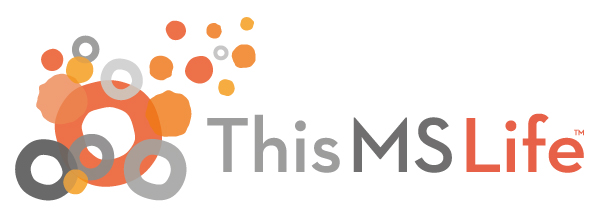
MultipleSclerosis.net Latest on MS Clinical Trial
This article was from multiplesclerosis.net. I haven’t posted much on research lately. Probably because I am at a point where most drugs in the horizon won’t help. However, today Facebook has been showing ads for multiple sclerosis drugs that ARE NOT drugs approved for MS or covered by insurance. They are just ads from companies trying to target a market for the chronic disease. I don’t mind the ads when it’s nail gels or low carb keto snacks. By all means, show me ads based on what I’ve searched on the web. DO NOT generate ads based on bullshit drugs saying they can cure my disease or my extended list of symptoms. That to me is in very poor taste. I’d rather give real information to my readers. https://multiplesclerosis.net/clinical/latest-clinical-trials?utm_source=weekly&utm_medium=email&utm_campaign=bb6bbfd7-8648-4e39-9156-536bd02daaa1&utm_confid=sovifjrls&aGVhbHRoIHVuaW9uIGJsYWg=7bb46c94ce2d8fb9602b7e9b37480a09527f5f0430cae5d11bdeb990f040d65e&vmp_email=7bb46c94ce2d8fb9602b7e9b37480a09527f5f0430cae5d11bdeb990f040d65e
The Latest on MS Clinical Trials

By Editorial Team
6 days ago
Clinical trials testing new therapies for multiple sclerosis (MS) are changing. Part of this change has to do with who is participating in MS clinical trials. Today’s trial participants tend to have less severe symptoms than in the past. This is because people are getting diagnosed earlier and have access to better medications now.1
Another part of the change is the personalization of MS treatment therapies. Today, doctors tend to focus on treating both disease-related factors and patient-reported symptoms. This has led to a push for new MS clinical trials to center more on outcomes reported by participants.2
2022 MS clinical trials
Clinical trials for MS are divided into two main categories:1
- Treatments for relapsing-remitting MS (RRMS) – RRMS is when the disease goes through cycles of pausing before advancing again. Trials for this form of MS tend to be more common and successful.
- Treatments for progressive forms of MS (PMS) – PMS is when the disease actively advances without relapse. Although trials for this form of MS have not been as successful as those for RRMS, new methods show promise.
MS is now widely understood to be an autoimmune disease. So, most new trials look at ways to reduce symptoms or disease progression by targeting the immune system. Read on to explore what current MS clinical trials are focusing on.3
Dietary studies
Some studies have explored how dietary changes may reduce inflammation. In the trials, people with MS followed intermittent fasting and restricted calorie diets. They ate only small amounts of food on some days and fasted on others.4,5
The diets resulted in positive changes to participants’ metabolisms and immune systems. This, in turn, reduced the inflammation that leads to MS symptoms. Researchers think the diets change the conditions in a person’s gut. This change affects their metabolism and immune system.4,5
Trials also have looked at the effect of a ketogenic diet. In this type of diet, people eat foods high in fat but low in carbohydrates. The diet was found to have positive effects. People with PMS reported a higher quality of life while following this diet. They also had less depression and fatigue.6
New biologic therapy
One new therapy under investigation for MS is called ublituximab. It falls into a class of drugs called biologics, which are made from living cells.7
Ublituximab is an antibody-based treatment. It targets a specific protein on B cells. B cells are immune cells known to play a key role in autoimmune attacks in people with MS. Ublituximab binds to this protein and prevents the B cell from working properly. This reduces the number of B cells available to create inflammation.7
Trials have shown that ublituximab can reduce disability in those with RRMS. It also improves their quality of life. Some people who took it for 96 weeks showed no disease activity at all. This means they had:7
- No relapses
- No brain lesions
- No disease progression
- No new or growing brain lesions
Existing medicines
Sometimes trials compare an experimental drug to an existing one to see which is more effective. Rituximab is a biologic that reduces B cell activity. In one trial, people who took rituximab were 5 times less likely to experience a relapse than those who took the approved drug TecfideraⓇ (dimethyl fumarate).8
Those who took rituximab in the study were also 32% more likely to have no relapses, no new or enlarging brain lesions, and no disability progression.8
Children with MS participated in a trial that found taking Aubagio (teriflunomide) can lower their risk of relapse. The findings mirror those of studies involving adults. The latest study on this age group used older trial data but analyzed the data with newer methods to account for the small number of participants. (Because MS is less commonly diagnosed in kids, they are often underrepresented in trials.)9
Combo medicines
Sometimes researchers also study the effects of taking a combination of therapies. A recent study looked at women with MS who took estriol, a pregnancy hormone, along with the approved MS drug CopaxoneⓇ (glatiramer acetate). They found that the combo therapy resulted in lower levels of substances in the women’s blood that indicate nerve damage.10
Progressive MS
Experts do not understand PMS as well as RRMS. But they think it affects the body differently. A growing body of evidence also supports a link between PMS and infection with the Epstein-Barr virus (EBV).1,11
A new medication, known as ATA188 for now, is a T-cell-based therapy meant to get rid of cells infected with EBV. T cells are specialized immune cells.11
Trials investigating ATA188 are in the early phases. But so far, the data hints that people with MS who take it may experience some repair to the outer sheath of their nerves (myelin).11
Participation and representation
Clinical trials are the best method for discovering new, safe, and effective treatments for MS. But women and people of color tend to be underrepresented in clinical trials. Learning how you can participate in trials is the best way to help make sure treatments and therapies apply to all people.12,13https://multiplesclerosis.net/clinical/latest-clinical-trials?utm_source=weekly&utm_medium=email&utm_campaign=bb6bbfd7-8648-4e39-9156-536bd02daaa1&utm_confid=sovifjrls&aGVhbHRoIHVuaW9uIGJsYWg=7bb46c94ce2d8fb9602b7e9b37480a09527f5f0430cae5d11bdeb990f040d65e&vmp_email=7bb46c94ce2d8fb9602b7e9b37480a09527f5f0430cae5d11bdeb990f040d65e
